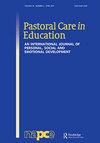Digital media and relationships, sex, and health education in the classroom
IF 0.9
Q3 EDUCATION & EDUCATIONAL RESEARCH
引用次数: 1
Abstract
ABSTRACT Young people’s socio-sexual lives and development have become increasingly digitally mediated over recent years. There are implications for classroom-based Relationships, Sex, and Health Education (RSHE), which has recently been made mandatory in most state-maintained schools in England. The evidence base pertaining to good practice in RSHE is extensive and identifies a need for RSHE to be relatable and relevant to learners, and to position learners as active participants in the pedagogic process. Typically, young people’s use of digital media is considered a risk or problem to address in RSHE and this includes their use of digital media for formal and informal learning about sex and relationships. This paper explores the potential value of digital media to classroom based RSHE. It considers how using digital media in the classroom could help to convey material in a relatable and relevant way, including how the ‘influencer model’ may represent a new opportunity for or form of peer delivered education. It also discusses the value of strengthening young people’s skills in identifying reliable and trustworthy content and in applying the content to their own lives, which may necessitate opportunities for independent and self-directed learning away from the classroom.课堂上的数字媒体与人际关系、性和健康教育
近年来,年轻人的社会性生活和性发展越来越受到数字媒介的影响。这对以课堂为基础的人际关系、性和健康教育(RSHE)有影响,这一教育最近在英国大多数公立学校被强制推行。与RSHE良好实践相关的证据基础是广泛的,并且确定了RSHE需要与学习者相关和相关,并将学习者定位为教学过程的积极参与者。通常,年轻人使用数字媒体被认为是RSHE中需要解决的风险或问题,这包括他们使用数字媒体进行正式和非正式的性和关系学习。本文探讨了数字媒体对基于课堂的RSHE的潜在价值。它考虑了在课堂上使用数字媒体如何有助于以相关和相关的方式传达材料,包括“影响者模式”如何代表同伴交付教育的新机会或形式。它还讨论了加强年轻人识别可靠和值得信赖的内容以及将内容应用于自己生活的技能的价值,这可能需要在课堂之外进行独立和自主学习的机会。
本文章由计算机程序翻译,如有差异,请以英文原文为准。
求助全文
约1分钟内获得全文
求助全文

 求助内容:
求助内容: 应助结果提醒方式:
应助结果提醒方式:


